Speakers and Presentations
NOTE: The details below are listed in the following order: Plenary talks and the Sunday panel are listed first in order of appearance in the program. Following that, the parallel sessions presentations are listed in order of speakers' first names.
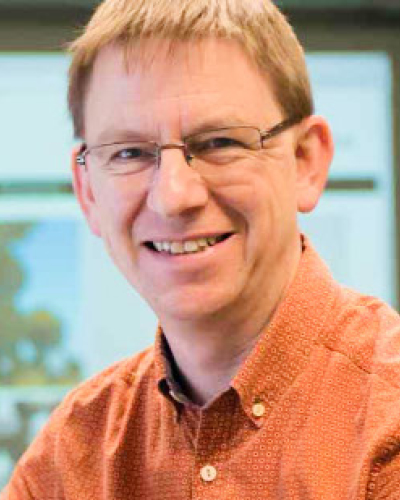
AI is in the news now, but scientists have been working on it for seventy years. So why now? What has happened, is happening, and will happen? This talk will summarise the history of AI and explain the current technology of deep learning that has led to generative AI systems that can do things we once thought were the sole purview of human beings. Neil will speak about the positive and negative potential of AI, how we respond to the ethical problems it raises, and how the church might engage in the debate.
Neil Dodgson is one of our three “AI x Christianity” keynote speakers, as a leader in this inter-disciplinary field. He is Professor of Computer Graphics in the Faculty of Engineering and Dean of the Faculty of Graduate Research at Victoria University of Wellington. He has spent 30 years working across mathematics, engineering, and computing, including twenty years as co-leader of the Graphics and Interaction Research Group at the University of Cambridge Computer Laboratory. His current research students use a range of AI techniques to achieve novel results in image processing.
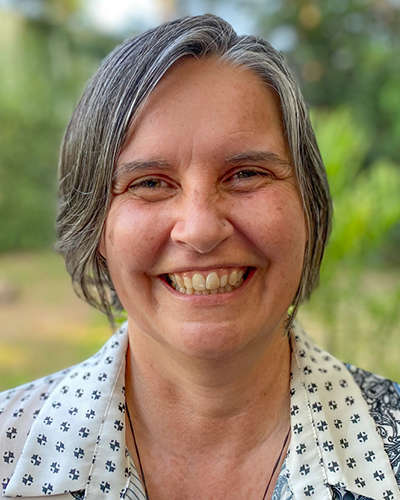
As AI rapidly transforms the workplace, it presents both opportunities and challenges. Kara will explore AI’s potential to boost productivity and innovation, while also addressing job displacement and inequality. Rooted in the biblical view of work as a gift from God, how can we affirm the dignity of human labour and highlight the importance of creativity, ethics, and stewardship in an AI-driven world?
Kara Martin is a lecturer, mentor, podcaster, as well as author of “Workship” and “Workship 2”, which are focused on rediscovering our vocations, and “Keeping Faith” which is about developing organisational theologies. She lectures at Mary Andrews College, Sydney, and is an Adjunct Professor at Gordon-Conwell Theological Seminary, Boston. Drawing on 30 years of experience in corporate and not-for-profit roles (in TV journalism, human resources, business analysis, lecturing, policy formation, advocacy, theological studies, leadership, and lecturing), her books provide a biblical foundation and practical wisdom to equip workplace Christians, churches and Christian organisations. Both “Workship” books were shortlisted for Australian Christian Book of the Year. She will share on the topic of “Gospel Wisdom for Work” in our “AI x Christianity” session.
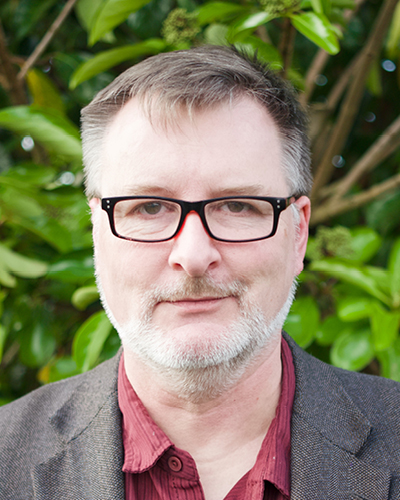
Technological developments bring with them both a sense of wonder at human creativity and ingenuity, alongside very real anxieties about the nature and use of technology. Converging technologies such as artificial intelligence and robotics; genetics, medical, and biotechnologies; information and communications technologies; and nanotechnology generate existential questions about our humanity and threats to the wellbeing of communities and the world, as well as more mundane ones around work and employment, security, education, and everyday ethics. Drawing on biblical and theological insights and the notion of ‘appropriate technology’ this presentation examines what grounds faithful, wise living in this technological world, and who do we say Jesus Christ is in it.
Stephen Garner is a Senior Research Fellow at Laidlaw College and a consultant at thirdSpaces Consulting. With backgrounds in theology, computer science, and higher education, his research and writing engage with theology, technology, media, ethics, and public and context theology. For 25 years, he’s worked with people developing practical wisdom for living faithfully and ethically with digital technology, media, and culture. He currently serves on the board of the Global Network for Digital Theology, is co-chair of the American Academic of Religion Human Enhancement and Transhumanism Program Unit, and is a member of the Lausanne Theology Working Group.
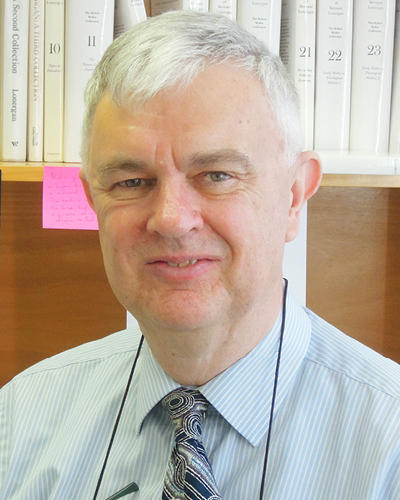
The question of who or what is a human being is hardly a new one. When European explorers “discovered” new lands and encountered indigenous peoples a repeated question was “are these people truly ‘human’?” Looking into the future, we face the same question in terms of technological enhancement of humans, or transhumanism. However, we can push the question back into the past. At which stage in human evolution did human being emerge? What are the markers that distinguish the human from the non-human? It is increasingly clear from the paleontological evidence that those we call Neanderthal possessed traits which we normally identify as “human”: art, tools, burial rites, and the like. This sub-species differed from Homo sapiens, though the evidence is they could interbreed. Do we have two distinct branches of the genus Homo that are truly “human”? If so, what are the theological implications of this in terms of concepts such as original sin, the unity of the human race, and salvation?
Neil Ormerod is an honorary professor at Alphacrucis University College, and has doctorates in theology and pure mathematics. He has published 14 books and numerous research articles in leading international theological journals. He has written books on theology and evolution, and on natural theology in dialogue with contemporary science. His work on the Jesuit philosopher and theologian Bernard Lonergan has received international recognition.
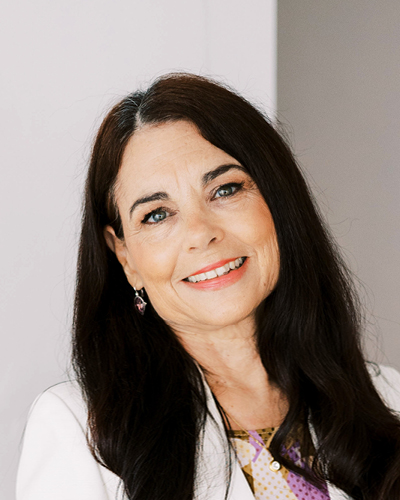
This talk will offer a brief overview of what transhumanism is, the goals that some advocates aspire to, and seven key threads of future technologies that relate to the “progress” of the human person. What transhuman agendas will usher in a new improved humanity? And what agendas will diminish and/or destroy human dignity and freedom? Are we “living souls,” made “in the image of God,” or merely “data algorithms” and “hackable animals”? How do transhumanist elites and global technocrats plan to use these developing technologies to achieve their agendas? The world is awash with cultural icons and transhuman motifs in the media and the movies. Where is it all heading? And what should be a Christian view of technology in light of our missional mandate on the earth?
Sandra Godde is an independent researcher and apologetics coach. For over a decade, Sandra was a lecturer in theology and in Religious and Sociocultural Worldviews, at Harvest Bible College (Brisbane) and Christian Heritage College. Her research interests lie in the areas of Christology, apologetics, worldviews, and the interactions between science and faith. Her recently published book Reaching for Immortality: Can Science Cheat Death? is a theological response to transhumanist ideals. Sandra has also contributed a chapter, “What Does it Mean To Be Human? Examining the Importance of Embodiment for Personal Identity Through a Transhumanist and Christian Worldview,” to the recent book, A Curious Machine: Wesleyan Reflections on the Posthuman Future.
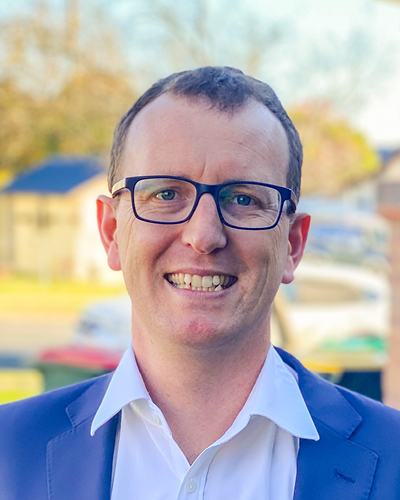
This presentation explores the theological implications of AI through the lens of Christian doctrine. It argues that the development of AI mirrors the human condition, marked by sin and its consequences. Firstly, AI’s potential for both good and evil is examined. While it can be a powerful tool for progress, it can also amplify existing injustices and authoritarian tendencies. This echoes the biblical theme of technology as a force multiplier, capable of serving both righteous and sinful purposes. Secondly, the training process of large language models (LLMs) is compared to the human condition of total depravity. By absorbing vast amounts of internet data, LLMs become capable of imitating human vices and debauchery, reflecting the sinful nature of humanity. Thirdly, the concept of reinforcement learning in AI is analysed in relation to people-pleasing. While LLMs can be trained to be more “civil” and avoid offensive content, this can lead to a superficial conformity that masks deeper moral issues. This parallels the biblical warning against seeking approval from others at the expense of righteousness. Finally, the presentation addresses the challenges of developing a moral framework for AI. The moral division of our age and the difficulty of establishing universal ethical standards hinder efforts to create AI systems that are truly beneficial to humanity. (Talk summary written by Google Gemini AI.)
Stephen works for the Australian Fellowship of Evangelical Students (AFES) in Canberra at the Australian National University. He loves training and ministering to the undergraduate and postgraduate students there and sharing the gospel with people on campus. He recently authored the book Made in Our Image: God, Artificial Intelligence and You, published by Matthias Media, which offers a biblical perspective on the rise of AI. He is married to the lovely Lauren and they have two young children.
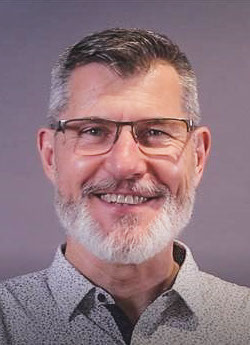
People with gender dysphoria experience a distressing alienation from their sexed bodies. Theological responses to gender dysphoria range from those who reject both social and medical/surgical transitioning as an unfaithful rejection of the goodness of created embodiment to those who celebrate it as an expression of the diversity of God’s good creation. I aim to challenge those views by bringing to bear insights from eschatology and disability theology. I argue that a commitment to the goodness of creation must allow for an awareness of brokenness in the world as it now is, and the ways such brokenness non-culpably impinges on human creatures’ bodies and lived experience. Without adopting normate biases, Christian eschatology holds out hope for a future of healing and transformation that may include transformation of the body as well as of desires, affections, and experience. We do not know whether the eschatological “healing” of gender dysphoria will take the form of conforming experience to embodied form, or conforming the body to gendered experience. This opens up a diverse range of possible faithful responses to the distress of gender dysphoria, including but not limited to social and medical transitioning.
Andrew Sloane is Lecturer in Old Testament and Christian Thought at Morling College, Sydney, where he has taught since 2002. He teaches and researches in the areas of Old Testament, philosophy of religion, theology of medicine, bioethics, and integration of faith and work. Andrew qualified in medicine and practised briefly as a doctor before training as a Baptist pastor. His latest book is Vulnerability and Care: Christian Reflections on the Philosophy of Medicine (T&T Clark, 2016). He has recently published articles on medical moral injury, theology of work, and theological perspectives on cognitive disability.
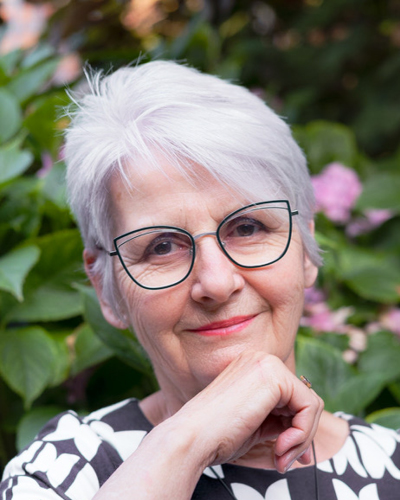
There may be no area of recent public debate that entwines science, faith, and culture as provocatively as gender. It is also an area in which civil conversation has been distinctly lacking. In 2024 alone, the participation of non-binary athletes in Olympic sports was only one of the many gender issues that played across our media. These debates are a distinct challenge to many Bible readers, whose assumptions of human embodiment include innate sexual qualities, heteronormativity, binary sexuality, and a certain conception of the “family.” For many people of faith, these characteristics of human sexuality are intrinsic to the creation of humanity as revealed in the Genesis creation stories. This presentation aims to begin a conversation by reviewing a recent book by gender theorist, Judith Butler (Who’s Afraid of Gender? Allen Lane, 2024). The presentation will look at some of her arguments from the perspective of the vision of humanity proposed in Genesis, aiming to consider what can and cannot be said from the creation narratives.
Barbara Deutschmann is author of Creating Gender in the Garden: The Inconstant Partnership of Eve and Adam (T & T Clark, 2022) and co-editor of Reading the Bible in Australia (Wipf & Stock, 2024). As well as her research, Barbara occasionally teaches at Trinity and Whitley Colleges and speaks to churches on the subject of gender. More practically, she has worked with Interserve International on achieving their gender equality goals. In 2020, she completed a PhD on gender in the Eden narrative and is now a research associate at Whitley College, part of the University of Divinity.
Having had over a decade in mission in India and twenty years with TEAR (now Tearfund) Australia, questions of “Why do women around the world suffer such poor life outcomes, and what part do cultural and religious beliefs play in this situation” prompted Barbara’s return to academia. Whilst at Tearfund, Barbara coordinated a program supporting Indigenous organisations, a project that led her to live for some years in Alice Springs.
She heads up the Learning Circle at her local church—a group that aims to learn from the experiences of First Nations people. She shares life with partner, Peter, three adult children, and a clutch of grandchildren and she is an active member of St Mark’s Anglican Church, Spotswood. And in case that all sounds passionless, she relishes footy, Pilates, crime novels, long walks, Central Australia, and good bread.
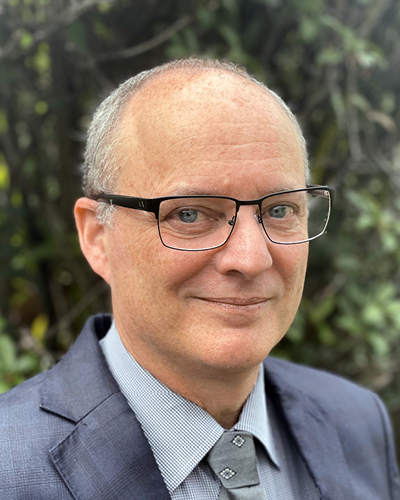
Aristotle’s understanding of “natural kinds” is basic to biological classification, even today. Here, natural categories—such as the human male/female reproductive sex binary—can be known as essential truths of nature that are not a function of human interest or interpretation. Yet the philosophy of science after Kant has been firmly anti-realist, denying that essential natural meanings can be known. Science is now largely thought of as a human knowledge construction enterprise, situated firmly within phenomenological and culture-interpretive frames, which is instrumentally valuable, but which does not provide us with any essentially true knowledge of nature. That is, the long revolt against Aristotle in modernity takes a new lease of life with the Enlightenment. So what, then, does a biological scientist actually know? Butler’s answer is that nature (sex), culture (gender), and subjective belief (identity) are anti-essentialist and performative co-constructions. This paper will explain why, in our post-Enlightenment context, the denial that the male/female sex binary is an objectively observable biological reality is now thought to be a very reasonable stance. This paper will also critique this stance by drawing on the theological foundations of modern science.
Paul Tyson is a philosophical theologian and a sociologist with interests in faith and truth, the sociology of knowledge, and the role that science plays in our approach to truth (and untruth) in the contemporary world. He has written books on theology and climate change, on Christian sociology, on the “magic” of meaning and intelligibility, and he has pursued a metaphysical theology approach to the theology of science. His work seeks to make a new application of Christian Platonist thinking to our contemporary context. Recently he coordinated a Templeton Foundation funded international research project with John Milbank, Peter Harrison, and Tom McLeish which brought philosophical theologians together with historians and scientists to try to re-think how we approach both “religion” and “science.”
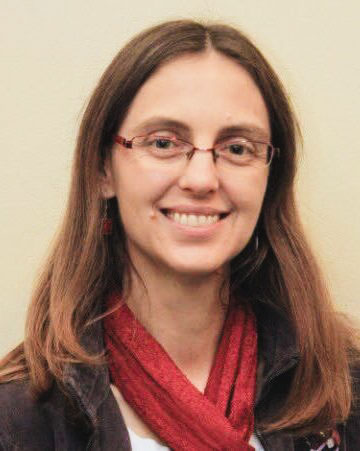
Dani Scarratt is Assistant Director of the Centre for Christian Apologetics, Scholarship and Education (CASE) based at New College, where she co-edits and writes for Case Quarterly. She has a BA (Hons) and BSc (Psych. Hons) from UNSW, a doctorate in philosophy from the University of Sydney, and a musical instrument hire business. She and her husband, David, have three adult children and attend St George North Anglican Church.
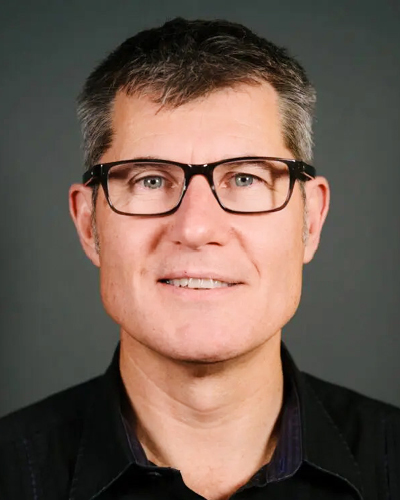
Andrew Sloane is Lecturer in Old Testament and Christian Thought at Morling College, Sydney, where he has taught since 2002. He teaches and researches in the areas of Old Testament, philosophy of religion, theology of medicine, bioethics, and integration of faith and work. Andrew qualified in medicine and practised briefly as a doctor before training as a Baptist pastor. His latest book is Vulnerability and Care: Christian Reflections on the Philosophy of Medicine (T&T Clark, 2016). He has recently published articles on medical moral injury, theology of work, and theological perspectives on cognitive disability.
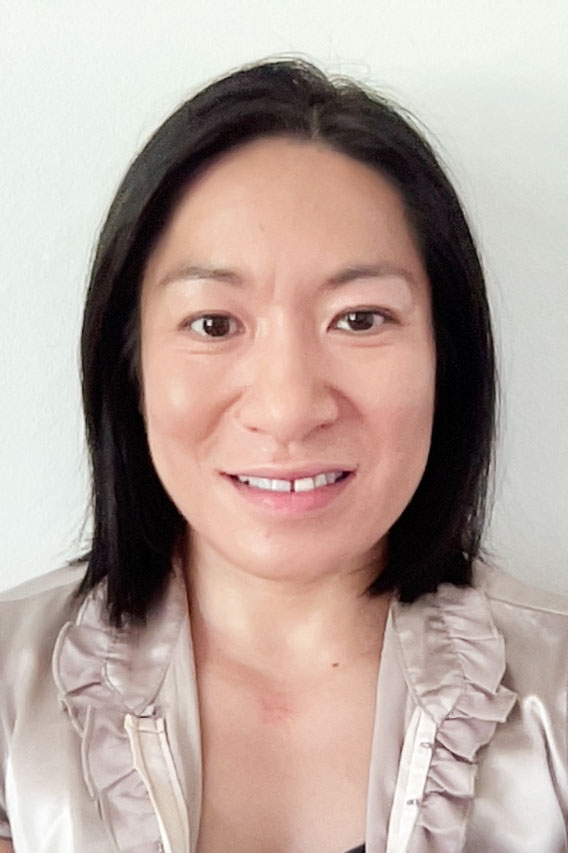
Mel Fung has worked for over 15 years in private practice as a Christian psychologist. She has a special interest in body issues and completed her doctoral thesis in the area of body image and self-esteem. Mel recently finished her Masters of Theological Studies at SMBC where she conducted research into Christians with Gender Incongruence / Dysphoria and their experience of church. She is passionate about churches engaging with the topic of gender and supporting those with gender identity struggles. This year she attended the Genspect conference in Portugal and wished there was a Christian voice to contribute Jesus’ wisdom to the conversation.

Christian theological reflection on digital media, technologies, and culture is increasingly gathered under the umbrella term “digital theology.” This covers the use of digital technologies and media for theological education and scholarship, the place and impact of digital technologies in worship, discipleship, mission, and Christian formation, and ethical public and theology engagement with digital media, technologies, and culture in the wider world. This presentation sketches the emergence of digital theology as a discipline, its relationship with the adjacent field of digital religion, and current challenges and opportunities in local and global contexts.
Stephen Garner is a Senior Research Fellow at Laidlaw College and a consultant at thirdSpaces Consulting. With backgrounds in theology, computer science, and higher education, his research and writing engage with theology, technology, media, ethics, and public and context theology. For 25 years, he’s worked with people developing practical wisdom for living faithfully and ethically with digital technology, media, and culture. He currently serves on the board of the Global Network for Digital Theology, is co-chair of the American Academic of Religion Human Enhancement and Transhumanism Program Unit, and is a member of the Lausanne Theology Working Group.

In online searches, historical lists from previous centuries name scientists who professed a Christian faith. Within these lists, there are many males, with remarkably few entries for female scientists. Yet a considerable number of Christian women made impressive contributions to scientific knowledge in the 17th, 18th, 19th and 20th centuries. What did they do? How was their work received? And why have they been overlooked? To answer these questions, a small selection of these scientists, working in these past centuries, and from various disciplines, will be introduced. Their discoveries and achievements, as well as the significance of their work within its historical context, will be described. The challenges they faced, both personal and societal, will be analysed together with the factors that enabled their careers. The relative obscurity of female scientists in the past is today being challenged and the invisibility of these Christian women of science will be explored.
Jenny Davis is a retired microbiologist, with a background in specialised bacterial identification and public health bacteriology. Her work at the Microbiological Diagnostic Unit Public Health Laboratory (now part of the Doherty Institute) involved unusual or poorly recognised bacterial species, as well as those affecting public health. She has authored or co-authored 14 publications in peer-reviewed journals and presented at microbiological conferences. In retirement, she has pursued her passion for science communication, first ignited during her time as an ABC Science Media Fellow in 1998. Her particular interest is local Australian science history with a focus on the scientists themselves and their fascinating stories. As a volunteer broadcaster, Jenny has presented 22 programs on this topic for the Victorian community radio station RRR. A practising Christian, Jenny does not perceive a conflict between science and religion; in fact, one illuminates the other. She supports ISCAST in its work to ensure that this false dichotomy does not discourage young Christians in their faith.
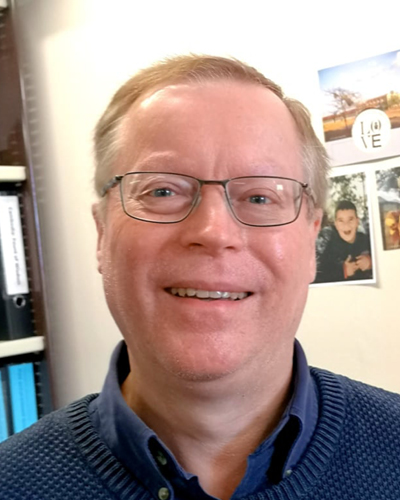
Slowing ageing and keeping things young are popular goals, it seems, from our timber decking to human beings. Even within the scientific establishment, reversing human ageing is an active area of research. What does Christian theology have to say to this? Integral to its response is answering the question “Is human ageing a good of creation or an effect of sin?” The two alternatives of whether ageing is of God or not are as disparate as black and white. Yet, a cohesive answer is vital and will shape theology’s response to the aged and the ageing process, even at the pastoral level. Christian theology’s enduring Cosmic Fall theory is influential in claiming that human ageing is an effect of sin in the world. The aims of this paper are to outline the Cosmic Fall theory, reveal its deficiencies, and provide evidence for an alternative model: Cosmic Disintegration. This model stresses the fundamental and persistent goodness of God’s creation, with biological ageing as an organically original and theologically good component of it. To recognise human ageing as a creational good is to support “Humanity 1.0” and to provide a strong foundation for a constructive practical theology of ageing.
David Hooker has an MSc in molecular virology, an MDiv in biblical studies and theology and a PhD in theology on the theme of human ageing. He is currently Publications Director at ISCAST–Christianity and Science in Conversation and teaches in Monash University’s Bachelor of Biomedical Science degree. He has authored publications and patents in molecular biology, virology, and theology, and has pastored an evangelical cross-cultural church in Melbourne. He is currently and keenly expanding a research program on a synthesis of the theology and science of human ageing.
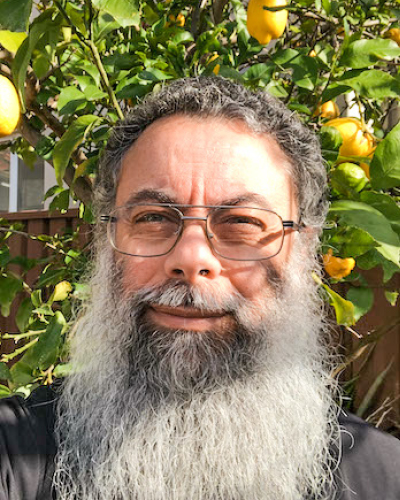
Can AI become self-aware of its own existence, phenomenally conscious, sentient? As AIs exhibit evermore complex behaviour—the kind of intelligent behaviour that always goes with conscious human beings—this question becomes more pressing. But how can we tell if and/or when AI becomes sentient? How do we identify the “ghost in the machine”? In an attempt to unravel some of the thickly tangled threads that obscure this topic, I survey the current state of consciousness-identification paradigms and find them all wanting. Further, there are plausible reasons for thinking that a machine without an organic body may be inherently incapable of sentience. And finally, I ask the question: If we can’t know for sure, should we just treat AI as sentient anyway, just in case?
Antonios Kaldas has been a Coptic Orthodox parish priest at Archangel Michael & St. Bishoy Coptic Orthodox Church since 1991 and he lectures in Philosophy at St Cyril’s Coptic Theological College under the Sydney College of Divinity. His research interests include Philosophy of Mind and Cognitive Science and Natural Theology. He is currently conducting research in Natural Theology at the University of Notre Dame, Australia. He is married with two grown up (mostly) children and two dogs, one of whom is almost certainly a Stoic sage.

This Q&A with Neil Dodgson offers the opportunity for participants to understand artificial intelligence in more depth. Neil will field the questions (perhaps using AI or other low or high-tech means!) so that he can respond to the common questions that people want answered. BYO questions and devices.
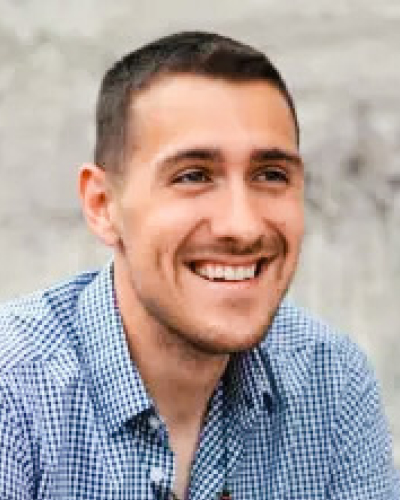
Tom Jump is an atheist who holds the position that there is no evidence for the existence of God, a sentiment shared by many in the atheist/sceptic community. However, unlike many in his community, Tom is also a moral realist. His view is unconventional because the standard of evidence he and many atheists use to conclude that there is no evidence for God would also result in concluding that there is no evidence for objective morality. Tom seeks to address this paradox by exploring how one can reasonably believe in something, such as objective morality, even if one believes that there is no evidence for it (on the common standard of evidence used by the atheist/sceptic community). He aims to demonstrate that such a standard can lead to a reasonable belief in God in a similar way that he arrives at a belief in objective morality.
Tom Jump “TJump” runs a popular atheist/skeptic YouTube channel where he holds debates and conversations with prominent theists such as Paul Copan, Robin Collins, Rob Koons, Luke Barnes, Chris Mulherin, Paul Moser, Richard Brown, Kirk Durston, Josh Rasmussen, and many more.
Parallel Speakers and Presentations
NOTE: The parallel speakers and presentations are listed in order of speakers' first names. The order and choice of parallel sessions is listed in the Parallel Sessions table.
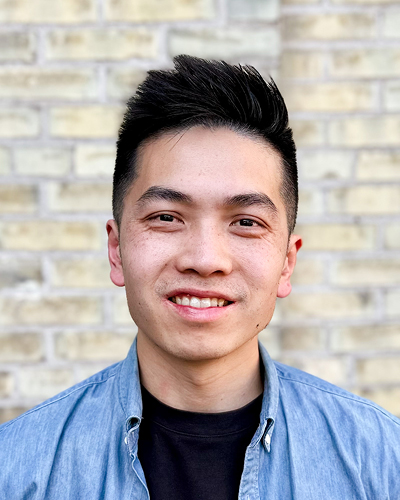
This presentation explores three distinct approaches to creating technology—reckless, responsible, and redemptive—and advocates for a redemptive framework. The focus is on how creators can build products and tools that not only benefit society but also reflect a Christ-centred approach to technology and human interaction. This presentation casts a vision for a paradigm shift in technology creation by emphasising redemptive creation, where self-sacrifice and deep spiritual dependence guide development. It seeks to challenge the dominant “move fast and break things” mindset, proposing a more thoughtful, ethically-driven, and spiritually-informed way of designing technology. This approach fosters human flourishing by placing people above products and advancing love for God and others. Drawing on theological insights and practical methodologies, this presentation introduces FaithTech’s “4D Cycle” (Discover, Discern, Develop, Demonstrate) as a framework for redemptive technology development. Through biblical examples and a focus on lament and discernment, it argues that creators must partner with the Holy Spirit in the process, prioritising relationships and long-term community impact over short-term innovation gains. By emphasising the redemptive way, the paper presents a Christ-centred path for creators to build tools that reflect God’s image and transform both users and creators alike.
Adrian Tam is a dynamic leader with extensive experience in faith-based community building, business development, and church planting. He comes up consistently as a “futurist” on strengths-based assessments and this can be seen in his track record of pioneering new initiatives. Currently he serves as the Regional Manager for Oceania at FaithTech, overseeing the launch and growth of city-based communities passionate about Christ and technology, and he has spoken on this topic at conferences and various media sources. Concurrently, he serves as the Assistant Director of Church Planting at City To City Australia, where he recruits, assesses, and trains church planters for missional impact and evangelistic growth. Previously, Adrian held leadership roles including as Head of Partnerships for a digital discipleship platform called Togather, where he led the platform’s expansion in Australia, and as Community Engagement Officer at the NORTH Foundation, managing engagement strategies and external partnerships. Additionally, Adrian has significant pastoral experience at several local churches in Sydney and a background in theological study. His expertise spans leadership development, strategic networking, and relationship management, with a passion for fostering community and advancing faith-driven initiatives.
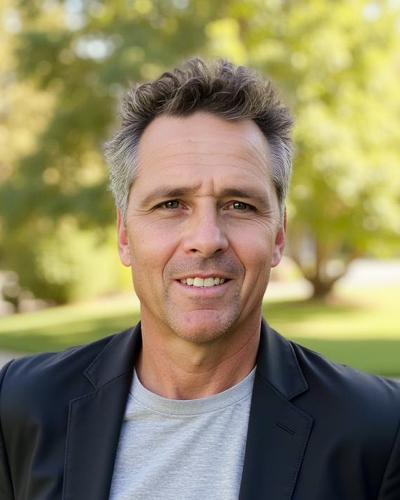
This presentation will explore four of COSAC’s focussing questions: (1) What does the Bible say about being human? (2) What are the implications of being made in God’s image? (3) Are bodies essential to being human? and (4) How can Christians contribute to societal discussions about human identity? By drawing on theology, hermeneutics, epistemology, anthropology, narrative studies, science fiction, and rhetoric, this talk argues that these questions are interconnected. The answers to questions 2–4 depend on one’s approach to question 1. Common errors in interpreting the Bible can lead to unintended consequences for Christian perspectives on human identity and societal engagement. This presentation will provide examples to illustrate how addressing question 4 is crucial for the overall Christian mission.
Antoni Lee is a seasoned communication consultant with over three decades of experience. His career began in the Australian Commonwealth Government in the early 1990s, followed by a stint as a pastor with his wife, Robbie, leading a regional pentecostal-charismatic church. In 2009, Antoni founded Rhetorica, a consultancy specialising in helping individuals communicate effectively in public settings. Over the years, he coached thousands of clients, including CEOs, journalists, politicians, and subject matter experts. His approach emphasised personal style, common ground, and effective argumentation, drawing inspiration from both Solomon’s Proverbs and Aristotle’s Rhetoric. Antoni holds a Master of Arts (Macquarie, 2010) and a Doctor of Arts (Sydney, 2024). His doctoral research explored the role of narrative and research in epistemic gain, with a focus on contemporary discussions involving religion, politics, and science. He has also designed and delivered postgraduate writing programs for the University of Sydney. Currently, Antoni is freelancing and continuing to apply his expertise in communication and persuasion.
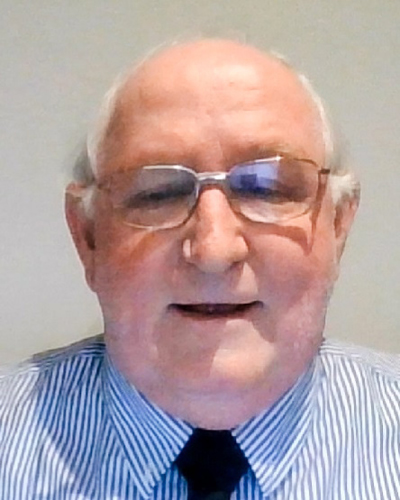
This talk focuses on the question: “Should we seek to combat mortality?” since death is a key theme in both Christianity and transhumanism. Traditional Christian theology maintains that God’s only remedy for death is offered in the comprehensive gospel of the Lord Jesus Christ and in him alone. It includes eternal life and eternal youth—no death, no ageing—in the New Heavens and the New Earth. Transhumanists, however, are seeking “radical” improvements now—living for hundreds of years and ultimately achieving immortality. They view death not as the inevitable result of human diseases, but as itself a disease that can be scientifically researched, treated, and cured, thus achieving eternal life by scientific means without Jesus Christ. This talk will argue that the foundational cause of ageing and death is to be found in the loss of genetic information due to the degradation of the human genome under the second law of thermodynamics. Since it is impossible to break any laws of nature, this means the quest to eliminate death is doomed to failure from the start, despite any research and discoveries made. Furthermore, the scale of the degradation means that there is no way around this problem.
Charles Riding has a broad background in Christianity, the physical sciences, and their intersection. His academic studies have included mathematics, physics, astrophysics, biblical studies, education, and philosophy. Charles has conducted research on topics such as the biblical concept of “The Day of the LORD,” the interpretation of biblical texts through a scientific lens, and the historical context of early Christianity. He has published articles in academic journals, including Zeitschrift Für die Alttestementliche Wissenschaft and Christian Perspectives on Science and Technology. A regular participant in ISCAST conferences and conversations, Charles actively engages with the scientific community and challenges prevailing assumptions about the relationship between faith and reason. He has spoken at conferences on topics such as “Jerry Coyne is wrong—Christianity is a science–starter, not a science–stopper” and “Can a consistent empirical scientist pray at all?”
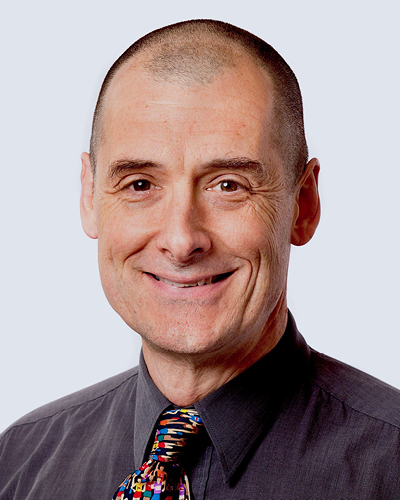
Like earlier products of science and technology, rapid advances in artificial intelligence and biotechnology present ethical challenges. And, in an increasingly pluralistic culture, an agreement about how to achieve the common good can no longer be counted on. One danger here is that a cautious optimism about the benefits of future technology is overtaken by “techno-enthusiasm,” which does not recognise what Christian faith takes to be foundational truths about humanity. In particular, the assumptions behind the “transhumanist” vision of enhancing human beings beyond the bounds of what has previously been thought possible, are at odds with Christian theological convictions, particularly in terms of human nature, sin, redemption, the body, suffering, and eternal life. Christians may appreciate the potential benefits of AI and biotechnology, but should also maintain a theological perspective that prioritises the common good, the work of the Holy Spirit, and the hope of ultimate restoration through Jesus Christ.
Chris Mulherin is ISCAST Executive Director and has a background in engineering, philosophy, and theology. Chris’s doctorate in philosophical theology and philosophy of science dealt with the relationship between scientific and other knowledge claims such as those of theology. He has taught and tutored at various universities in Melbourne in philosophy, history of science, Christian apologetics, and climate change. In the more distant past, Chris produced ABC Radio National programs, worked for Scripture Union, taught engineering, and spent 13 years in Argentina as a missionary with his wife Lindy and their five boys. In Argentina, Chris worked for the national student Christian group and led a church in the northwestern city of Tucumán. Chris’s book Science and Christianity: Understanding the Conflict Myth, designed for use in schools and churches, is available from ISCAST.
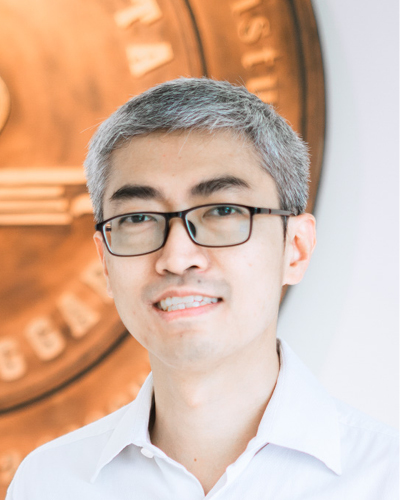
Currently, the discourse surrounding Artificial Intelligence often revolves around two polarising viewpoints. Exaggerated beliefs in AI’s intelligence have led to the idea of anthropomorphised AI as a new digital species. Nevertheless, there are concerns regarding the potential of AI to pilfer personal data, stifle creativity, eradicate livelihoods, and maybe lead to the downfall of human society. In order to avoid both approaches, which are either fearmongering or fawning towards AI, I propose an approach that emphasises the crucial involvement of humans in designing, training, and implementing responsible AI. My proposal is built on the integration between Latour’s Actor-Network Theory (ANT), Dooyeweerd’s modal aspects, and Aristotelian principles of responsibility. The first step is to identify the actors (human and non-human) and their modal aspects. The second step is to map the interactions between actors within the network. The last step will apply the Aristotelian principles of responsibility (knowledge, control, and freedom) to each actor. By combining these three perspectives, we can establish a framework for responsible AI based on Aristotelian principles, taking into account the constraints of each actor’s modalities and their collaborations within the network of systems.
David Alinurdin is a lecturer at Southeast Asia Bible Seminary, Indonesia and a PhD student in systematic theology at Vrije Universiteit Amsterdam. For the past six years, he has taught systematic theology and biblical studies for undergraduate programs, as well as been the editor for the seminary’s academic journal. Before that, he spent ten years in church ministry as a full-time pastor in a Methodist Church in Jakarta until he returned to his alma mater to equip young people called to full-time ministry. David has a bachelor’s degree in computer engineering and a master’s degree in theology. Taking and is intrigued by the prospect of exploring the correlation between theology and science and technology. His research focuses on how we can construct a framework that supports a full-fledged Christian-theological notion of God’s actions in the world and still remains scientifically plausible.
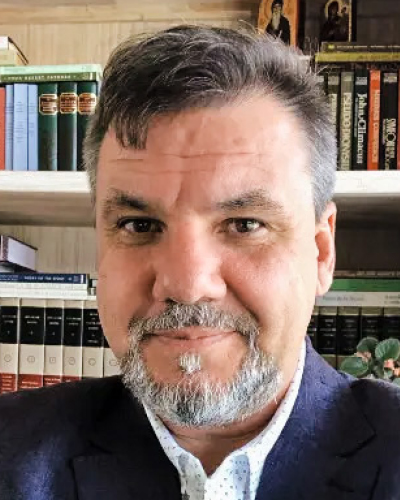
Human beings are a work in progress and, when their becoming gains purposeful depths, this entails striving to attain perfection. This is true both about the vertical advance from being “after God’s image” to becoming “Godlike,” and about the evolutionary horizontal advance of biological, cognitive, cultural, social, and spiritual development. Against this backdrop, I wonder whether diametrically opposite perspectives on human progress, such as deification and technological enhancement, cannot be seen as complementing each other rather than being considered mutually exclusive. I suggest that the purposeful pursuit of perfection requires both—and more, given the complexity of human, multidimensional existence.
Doru Costache is a Romanian Orthodox protopresbyter with over twenty-five years of pastoral ministry and thirty years of academic experience. He works as the ISCAST Research Director and as an Associate Professor of Theology at the Sydney College of Divinity. He coedits the ISCAST journal, Christian Perspectives on Science and Technology, and recently guest edited a special issue of De Medio Aevo (Complutense University of Madrid), on the history of Byzantine science and technology. He is a Fellow of ISCAST and of the International Society for Science and Religion. He was a Selby Old Fellow in Religious History of the Orthodox Christian Faith at the University of Sydney Library (2021–2022, 2023–2024). He co-chaired the “Cosmology” group of the TWCF–funded project “Science and Orthodoxy around the World” (Institute of Historical Research, Athens, 2020–2023). He published a monograph, Humankind and the Cosmos: Early Christian Representations (Brill, 2021) and coauthored two books, A New Copernican Turn: Contemporary Cosmology, the Self, and Orthodox Science-Engaged Theology (Routledge, 2024) and Dreams, Virtue and Divine Knowledge in Early Christian Egypt (Cambridge, 2019). Doru has over 100 journal articles, book chapters, and book reviews, published in a range of national and international outlets.

In this session, Doru will offer some clues to people who are interested in writing academic articles. The ISCAST journal, Christian Perspectives on Science and Technology, is always on the lookout for authors who can do this well.
Doru Costache is a Romanian Orthodox protopresbyter with over twenty-five years of pastoral ministry and thirty years of academic experience. He works as the ISCAST Research Director and as an Associate Professor of Theology at the Sydney College of Divinity. He coedits the ISCAST journal, Christian Perspectives on Science and Technology, and recently guest edited a special issue of De Medio Aevo (Complutense University of Madrid), on the history of Byzantine science and technology. He is a Fellow of ISCAST and of the International Society for Science and Religion. He was a Selby Old Fellow in Religious History of the Orthodox Christian Faith at the University of Sydney Library (2021–2022, 2023–2024). He co-chaired the “Cosmology” group of the TWCF–funded project “Science and Orthodoxy around the World” (Institute of Historical Research, Athens, 2020–2023). He published a monograph, Humankind and the Cosmos: Early Christian Representations (Brill, 2021) and coauthored two books, A New Copernican Turn: Contemporary Cosmology, the Self, and Orthodox Science-Engaged Theology (Routledge, 2024) and Dreams, Virtue and Divine Knowledge in Early Christian Egypt (Cambridge, 2019). Doru has over 100 journal articles, book chapters, and book reviews, published in a range of national and international outlets.
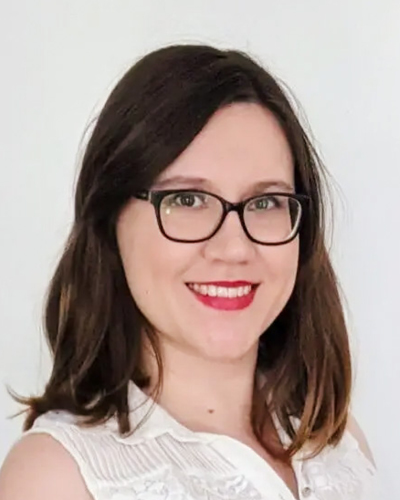
In this session, Emma will offer some insights into how to write articles for popular media, including Christian and mainstream publications. Learn how to develop your ideas for non-academic audiences, and how you can use your skills to write for ISCAST.
Emma is ISCAST’s Senior Editor. She is a writer, editor, and science communicator who specialises in making science accessible and engaging for a range of audiences. She has more than a decade of experience across a variety of marketing and communications roles spanning not-for-profits, universities, learned academies and online marketing agencies. Emma previously worked with the Australian Academy of Science editing policy reports, writing news article content, and providing science communication expertise for a range of content types and campaigns. She also wrote stories and managed social media for the ANU College of Science, before moving to Port Macquarie NSW. She now divides her time between multiple part-time roles and freelance writing.
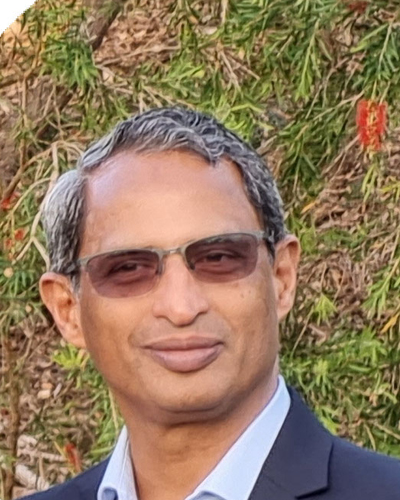
The 21st century has witnessed a significant shift in prenatal screening, moving from detecting specific diseases to a broader goal of ensuring human “normality.” This trend, along with IVF (In Vitro Fertilisation) gives parents the “choice” of having the embryo without many potential defects. Often driven by technological advancements like genomic sequencing and imaging, such possibilities raise profound ethical questions. As we grapple with the concept of “designer babies,” it becomes imperative to establish ethical guidelines for their use. This talk will explore the complex issues surrounding prenatal screening, (including what we understand by “normal”), the impact on human diversity, and the potential for unintended consequences. The talk will highlight the importance of ethical and moral boundaries in the use of prenatal genomic sequencing to protect against the misuse of these technologies and to ensure that they are used responsibly.
Joseph Thomas is a Senior Specialist in Maternal Fetal Medicine at the Mater Mothers Hospital in Brisbane. He trained at Christian Medical College Vellore, India and at the Women’s and Children’s Hospital Adelaide. He worked in several Christian mission hospitals in India before moving to Australia with his family. He is keenly interested in early human formation and the intricate mechanisms that drive fetal growth and development. He recently completed a Masters from Regent College (MA LTS) in Canada to study ethical frameworks and worldviews that influence decision making in the prenatal context. Joseph believes that medical ethics and the appropriate application of science and technology in perinatal medicine are challenges that need to be addressed urgently. He is currently co-chair of the Perinatal Ethics, Special Interest Group of the Perinatal Society of Australia and New Zealand.
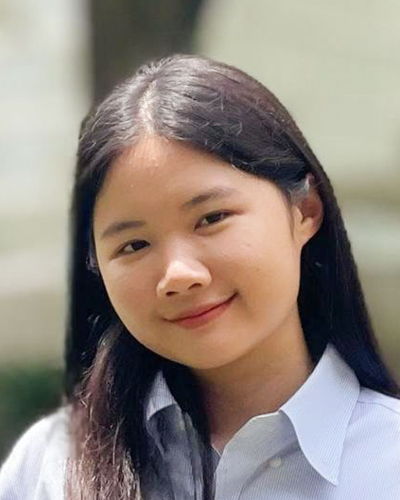
Social media algorithms use AI to curate personalized content based on a user’s preferences. Some Christians claim that God is working behind these algorithms, while others argue that algorithms are simply calculations that give predictable results. By examining social media algorithms through the lens of theology, this presentation proposes that these algorithms can serve as vehicles for divine action. Several possible explanations for such phenomena are: a) An algorithm’s core function: linking contents from different but related accounts; b) An algorithm’s exploration function: diversifying a user’s feed; c) Unexpected results: due to abnormal interactions (e.g., unintentionally pausing) or errors in the algorithm itself. It is possible for the Holy Spirit to work through these mechanisms; the Holy Spirit communicates God’s truth in ways humans understand, including social media contents (divine accommodation; Deut. 30:11-14). He works through media and inanimate objects (Luke 3:8; 19:40). He can also work through natural means (Exod. 31:3) and through means that defy laws and mechanisms (John 3:8; Acts 8:39-40). Lastly, this talk will suggest how Christians can contribute to algorithms being redeemed for God’s glory.
Josephine Kalista Utomo is a graduate student at Southeast Asia Bible Seminary (Indonesia) studying theology (M.Th), concentrating on Youth Ministry. Prior to and during her studies in theology, she also ministers through social media (Instagram, TikTok) personally and in a semi-professional team. She creates and publishes content mainly targeting youth about the gospel, Christian worldview and lifestyle, and apologetics. With her seminary peers she is starting a social media ministry representing her seminary. The team tries to understand and utilise social media algorithms to maximise their sharing of the gospel. This talk will explore and share how God works in and through technologies like AI in social media. As a Zillenial (hence a digital native), she wants to contribute to the discussion on how ambassadors of the gospel should respond to this phenomenon by using these technologies as missionary tools.
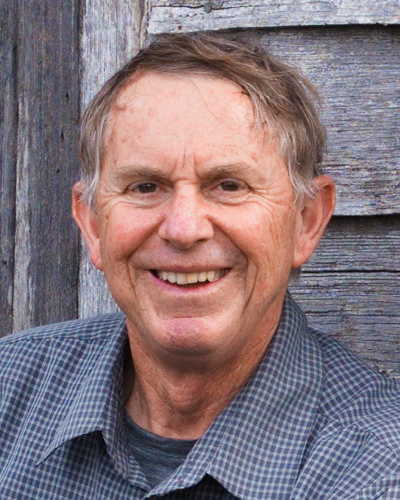
The last 50 years will historically be viewed through the lens of the invention and mass deployment of digital algorithmic machines, commonly referred to as computers. In the 2010s the confluence of digitisation, communications, and digital algorithmic processors led to the development of the “smartphone” unleashing enormous power to every person with such a device. But that has arguably created significant problems for human beings trying to live within the imago dei. This talk is a walk through the history of how we have used this technology. It will go behind the scenes to how we took simple algorithmic machines and enabled them to help us manage our world. The talk will also explore how we developed “systems” to assist us and how this design process is based on “computing ontologies.” It is these “ways of seeing the world” that are bleeding through and impacting society. The benefits of this technology are obvious but it is time that we look at the damage that the use of it has caused.
Mark Ridgeway is a retired IT professional who spent 40 years in large scale systems development and lived through IT’s formative years, often at the cutting edge. During his career he took a particular interest in the role of innovation to change the way we see and do things, from designing systems through to running learning events. In retirement he has now found joy in many community activities from helping country families with sick children to taking international visitors deep into the wonderous Sydney bushland.

This talk will survey the field of artificial intelligence and highlight the limitations of its approach to the domain of knowledge. It starts with the misunderstanding that AI is a breakthrough technology; it is not new and has a history as long as computers. The current excitement about AI does not recognize that it is simply another step in computing development. To fully understand the limitations of AI we will explore a range of challenging positions brought by various thinkers: Dreyfus, Searle, Penrose, Polanyi and finishing with David Bentley Hart’s recent work. We will survey the question of how we should understand AI, concluding that AI is artificial and, despite its capabilities, it has no real understanding. However, people also have limitations. How can AI help society to work around our human limitations in dealing with certain problems? The talk will quickly survey the possibilities that are current avenues of hope.
Mark Ridgeway is a retired IT professional who spent 40 years in large scale systems development and lived through IT’s formative years, often at the cutting edge. During his career he took a particular interest in the role of innovation to change the way we see and do things, from designing systems through to running learning events. In retirement he has now found joy in many community activities from helping country families with sick children to taking international visitors deep into the wonderous Sydney bushland.
